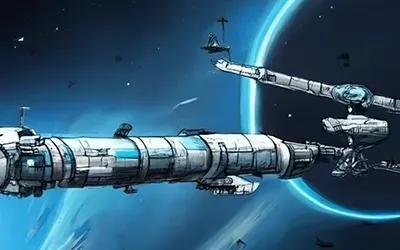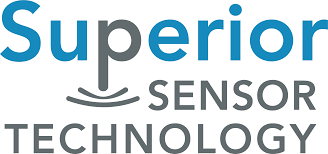Air leaks are a significant risk when working and living within the vacuum of space. Astronauts are only protected from the inhospitable void of space by the atmosphere within the space station or spacecraft. If even the slightest breach is not immediately detected, it can lead to an entire compartment being rapidly decompressed.

Image Credit: Superior Sensor Technology
As a result, space-faring vessels need precise systems for monitoring leaks and drops in internal air pressure, and differential pressure sensors are an essential part of such systems.
Differential pressure sensors continuously compare two input pressures, measuring the variance between the pressures instead of absolute pressure levels. This means they are well-suited for the detection of changes and fluctuations in pressure changes.
For aerospace applications, these sensors are used for the continuous monitoring of the internal cabin pressure against the external vacuum pressure of space.
The Value of Differential Pressure Sensors in Space Travel
The International Space Station (ISS) has a network of differential pressure sensors throughout the modules connected to a central monitoring system.
The ISS interior is pressurized to around 14.7 PSI to replicate the typical atmospheric conditions on Earth. The sensors have a substantial differential to monitor because the ambient pressure externally in space is essentially zero. This means that even the slightest leak leads to the internal pressure dropping as the air escapes.
This pressure drop is immediately detected by the sensors, and alarms are triggered at specified pressure change thresholds.
High-precision MEMS differential pressure sensors that are optimized for low pressures are crucial to the detection of leaks in space. The accuracy of these sensors enables pressure differences as low as 25 pascals (0.003 PSI) to be detected – a level that can indicate a potentially dangerous leak.
This level of sensitivity enables leaks to be detected while they are still minor and before any catastrophic depressurization takes place. Additionally, speed is crucial because leaks can quickly expand once initiated. Fast-response sensors deliver actionable information to the monitoring system and crew.
The sensor network helps to identify the origin of a detected leak via relative pressure readings in neighboring regions of the space station. Areas that display drops in pressure help to locate the zones of leakage. This allows astronauts to promptly close airlock doors and begin emergency procedures to isolate and repair any leaks.
Without the early detection of leaks, a minor breach could expand to decompress major compartments, endangering the lives of the crew.
Differential pressure sensors can also help to detect damage to external portions of space vehicles. For example, if micrometeorites or debris puncture the exterior hull, the pressure sensors between the inner and outer layers will record minute pressure changes to signal a breach, even if the inner air retention layers remain intact.
External leaks are equally dangerous because they can expand over time and ultimately lead to atmosphere loss. While NASA's crewed spacecraft and the ISS employ the most extensive pressure monitoring systems, differential sensors remain critical for detecting leaks.
To guarantee continual integrity while astronauts carry out extra-vehicular activities, sensitive MEMS differential pressure sensors are built into spacesuits. Uncrewed probes and landers also employ sensors during transit and arrival at their destinations to deliver telemetry data to Earth.
As space travel continues to advance, precise, low-power and lightweight differential pressure sensors will continue to improve the detection of leaks and monitoring of the atmosphere. The sensitivity and responsiveness of these sensors enable the thin envelope of air that keeps astronauts and spacecraft intact to be maintained.
With human ambitions set on sustained deep space missions and one day living on other planets, robust leak monitoring from differential pressure sensors continues to be a vital technology for our journey into the universe.
Summary
Differential pressure sensors are fundamental to modern leak detection strategies in spacecraft and space stations. They improve the safety of space travel in many ways, including the following:
- Early Leak Detection: These sensors are essential for the detection of minor changes in pressure, enabling potential leaks to be identified early before they become critical.
- Pressure Differential Monitoring: Differential pressure sensors constantly monitor pressure differences between different areas, allowing the rapid detection of anomalies due to leaks.
- Isolation of Issues: Measuring the differences in pressure between compartments enables these sensors to identify the precise location of a leak, assisting with rapid troubleshooting and isolation.
- Alert System: These sensors trigger alerts and alarms when pressure differentials exceed the safe thresholds, enabling a timely response and effective mitigation.
- Data for Analysis: The data provided by differential pressure sensors offers valuable insights into leak patterns. This helps engineers to analyze and improve the design and materials of spacecraft.
- Reduced Risk: The rapid detection of leaks enabled by these sensors minimizes the risk of compromising life support systems, guaranteeing the safety of astronauts and the integrity of the equipment.
- Energy Efficiency: The rapid detection of leaks also facilitates the efficient utilization of resources, avoiding unnecessary loss of fluids or gases.
- Maintenance Planning: These pressure sensors aid proactive maintenance planning, minimizing downtime and maintenance costs.
- Mission Success: The effective detection of leaks guarantees that space missions progress smoothly, with minimal disruptions, improving the overall mission success rates.
- Enhanced Reliability: Differential pressure sensors enhance spacecraft and space stations' general reliability and longevity by preventing pressure-related failures.
- Remote Monitoring: The remote monitoring of real-time data from these sensors enables ground control to help with leak diagnosis and decision-making.

This information has been sourced, reviewed and adapted from materials provided by Superior Sensor Technology.
For more information on this source, please visit Superior Sensor Technology.